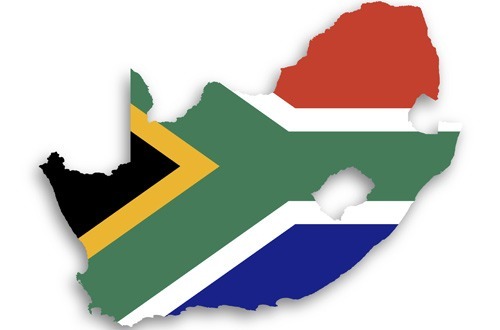Proudly South African announced on Monday that it has developed an innovative, in-house tender tracking system to monitor government’s compliance with its own mandate to make local procurement a priority.
Proudly SA’s chief executive, Eustace Mashimbye, said the system trawls the websites of all three spheres of government, their agencies and entities, giving the IT team full access to the terms of reference of all Request For Quotes (RFQs) and Request For Proposals (RFPs).
The software then delivers an email alert for each and every tender of those designated items using key words to identify goods and services that could be produced, manufactured and/or supplied by a South African company.
Both Mashimbye and the IT team acknowledge the assistance and input from the Southern African Clothing and Textile Workers’ Union (SACTWU) who implemented a similar programme in their sector with great results.
“[The system] allows us to contact the procurement officer for each tender in the designated sectors and ensure that they prioritise local companies supplying locally manufactured goods or services in their evaluation of submissions,” Mashimbye said.
“Secondly, it allows us to notify our own member companies who qualify to tender, to pitch for the business, thus adding to our members’ value proposition.”
The amended regulations of the 2017 Preferential Procurement Policy Framework Act (PPPFMA) require that all relevant organs of state purchase only locally produced products in certain sectors and sub-sectors at a prescribed level of local content. But compliance remains an issue.
The Proudly SA tender monitoring system flags award dates and allows an officer at Proudly South African to follow up to ensure compliance with legislation.
Mashimbye said if any government department or entity is found to be in breach of any legislation or the terms and conditions of the original tender, “they will be reported to the appropriate authorities and the tender may be declared null and void and be withdrawn”. (via African News Agency)
Jumia Travel, Accor Hotels Launch Tourism Trends Report
Jumia Travel in collaboration with Accor Hotels and Ethiopian Airlines compiled an in-depth report delving into the continent’s travel and tourism ecosystem, including the economic outlook, scale of hotel investment, pricing, air travel and constraints faced by stakeholders in the sector.
The report highlights major tourism, travel, and hospitality trends in Africa, giving a panoramic outlook on what the continent has so far achieved, lingering challenges, as well as various factors determining the industry’s landscape.
The report outlines the effect that greater mobile penetration is having on the tourism sector.
The percentage share of bookings completed through the smartphone on Jumia Travel stands at 68% as compared to 32% carried out on desktops. Mobile bookings are growing, well aided by Jumia mobile app which is readily accessible on both iOS and Android platforms. Another interesting observation on the adoption of mobile use is in the search phase, where an increasing share of 51% of travellers carry out their pre-trip planning and research on a smartphone as compared to 49% operating from a desktop.
Although it’s worth noting that mobile adaptation may vary from country to country, an overall internet penetration rate of 27.7 % in Africa’s points to the imperative need for hotels to adapt their services to the demands of the tech-savvy customer. The most active demographic falls between age 25-34 at 40.3% followed by 35-44, at 22%. This perhaps majorly explains the rapid adoption of mobile bookings as the age groups fall in the most tech-hungry of generations.
According to the report, intra-bound travel which essentially counts on Africans travelling within Africa takes dominance on Jumia Travel at 90%, with international arrivals amounting to 10%. In her commentary covering inter and intra-border tourism, Carmen Nibigira, the regional coordinator for East Africa Tourism Platform pressed stakeholders to invest more in developing marketing concepts that appeal and speak to the local market.
Souleyman Khol, head of marketing and revenue management (Africa and Indian Ocean) of Accor Hotels notes that Africa has the fastest growth in hotel development, taking into account both luxurious lines as well as economic establishments. The VP attributes the growing success in the sector to a rising middle class taking part in both business and leisure travel: “this is good news for us, as this emerging group forms a formidable base for intra-travel across the continent.” (via Bizcommunity)
Famous Brands Says Junk Status Will Harm Business And Consumer Confidence
Famous Brands said on Monday that the downgrade of South Africa’s sovereign credit rating to sub-investment status would harm business and consumer confidence.
Famous Brands said its management does not envisage an improvement in the home market economy in the near future.
Notwithstanding this context, Famous Brands said it will remain strongly focused on growth and scale across the brands and manufacturing divisions through innovation and cost containment.
This comes as Famous Brands reported a 33 percent increase in revenue to R5.7 billion for the year ended 28 February, up from R4.3 billion the previous year.
The chain restaurant owner said this strong set of results were attributable to a strategic and integrated business model, dedicated leadership, and unwavering focus on constant innovation in the business’s branded food service solutions.
This includes 20 weeks of turnover contribution from the GBK business, which was acquired with effect from October 2016.
Famous Brands owns Wimpy, Mugg & Bean, Europa, Tasha’s, Steers, Debonairs Pizza, Fishaways, Milky Lane, The Bread Basket, and many others.
Famous Brands said the acquisition of GBK had been significant in furthering the group’s goal to diversify its earnings and expand its geographical footprint, and that management was enthusiastic about the opportunities presented by the business and the UK market.
But in the UK market, Famous Brands said it anticipated continued short-term uncertainty as Brexit negotiations proceed.







